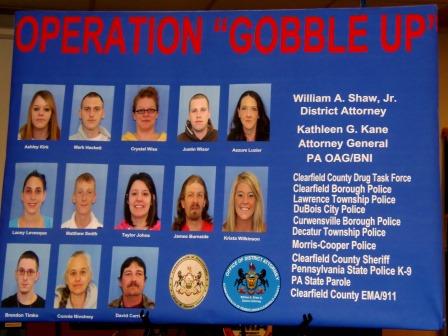UNIVERSITY PARK — While students may be focusing on finals or plans for the upcoming holiday breaks, University Police remind students living on and off campus to take a minute to review housing and travel safety procedures before leaving for an extended period of time.
Sgt. Franie McClellan, crime prevention and community education officer with University Police, suggests following a few simple steps to help secure residences and ensure student safety during longer stays away.
1. Lock up and secure your residence.
All students should secure valuables out of sight and have a valuables inventory, including a list of the make, model, serial number and any distinguishing marks of the items.
“That way if something were to happen, we can trace missing items easier,” said McClellan. If possible, students should take valuables such as computers and jewelry with them.
Before leaving town, students on and off campus should unplug electrical appliances to prevent fire hazards and check that all windows and doors are locked.
Students living on campus should report any damages to doors, windows or locks to the Housing representatives and have the damages fixed before leaving for breaks.
During the Thanksgiving break, campus residence halls will close at 10 a.m. Sunday and will reopen at 10 a.m. Dec. 1. At the end of the semester, residence halls will close at 4 p.m. Dec. 21, and will not reopen until 8 a.m. Jan. 11, 2014, for the spring semester.
While Penn State Housing staff monitor campus residence halls throughout school breaks, McClellan said that those who live off campus can ask trusted friends to check on their residences if they know someone who is staying in the area during the break.
2. Be aware of cybersecurity issues.
Beyond unplugging for fire safety and securing computers from theft, McClellan recommends students log out of all University systems.
“May sure you can’t be a victim of spyware, viruses or someone accessing your personal information,” McClellan said.
She added to make sure your antivirus software is up to date.
3. Travel safely.
Just like any other travelers, students should be careful not to share too much information on social media, McClellan said.
“We don’t want to let people know, ‘I’m leaving on Friday, and I’ll be gone for three weeks,’ that sort of information,” she said.
McClellan recommends students let somebody trusted know when they’ll be leaving town and when they should be expected to arrive at their final destination.
“That way, if something were to happen, it’s not going to be a significant period of time before somebody realizes that they’re missing,” she said.
McClellan added that students should make sure their cellphones are charged in case they were to have an emergency while traveling. She also reminds students to drive safely and to not text or consume alcohol or other drugs while driving.



